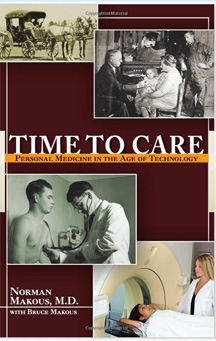February 21st, 2010 by Happy Hospitalist in Better Health Network, Humor, True Stories
No Comments »

It’s 2:00 am in the emergency room. That’s when the real doctor humor stories comes out to play. By now I’ve sent two patients home from the ER, one of which I spent 90 minutes discussing why chronic abdominal pain management needed to involve an outpatient supratentorial component and why coming into the hospital would be a highly disappointing experience. By now I’ve also admitted two patients to observation status, one of which is a guy with uncontrolled diabetes who remembered me from a year prior and thanked me for telling him nobody else was going to live his life for him and he needed to take responsibility for his poor actions in life. By now I’ve also brought two patients in for full hospital admission, one of which was placed immediately on end of life cares for end stage COPD, the other of which who’s son got the wrath of my smoking lecture.
Once the work was done, the doctor humor came out to play. Read more »
*This blog post was originally published at Happy Hospitalist*
February 18th, 2010 by Harriet Hall, M.D. in Better Health Network, Book Reviews
No Comments »

 In 1925, Francis Peabody famously said “The secret of the care of the patient is in caring for the patient.” A new book by Norman Makous, MD, a cardiologist who has practiced for 60 years, is a cogent reminder of that principle.
In 1925, Francis Peabody famously said “The secret of the care of the patient is in caring for the patient.” A new book by Norman Makous, MD, a cardiologist who has practiced for 60 years, is a cogent reminder of that principle.
In Time to Care: Personal Medicine in the Age of Technology, Dr. Makous tackles a big subject. He attempts to show how modern medicine got to where it is today, what’s wrong with it, and how to fix it. For me, the best part of the book is the abundance of anecdotes showing how medicine has changed since Dr. Makous graduated from medical school in 1947. He gives many examples of what it was like to treat patients before technology and effective medications were introduced. He describes a patient who died of ventricular fibrillation before defibrillators were invented, the first patient ever to survive endocarditis at his hospital (a survival made possible by penicillin), a polio epidemic before polio had been identified as an infectious disease, the rows of beds in the tuberculosis sanitariums that no longer exist because we have effective treatments for TB. Read more »
*This blog post was originally published at Science-Based Medicine*
February 17th, 2010 by DrRob in Better Health Network, Health Policy, Opinion
6 Comments »

I am going to state something that is completely obvious to most primary care physicians: I do not accept Medicare and Medicaid patients because it is good business, I accept them despite the fact that it is bad business.
In truth, I could make that statement about insurance as a whole; my life would be easier and my income would be less precarious if I did not accept any insurance. If I did, I would charge a standard amount per visit based on time spent and require payment at the time of that visit. This is totally obvious to me, and I suspect to most primary care physicians. A huge part of our overhead comes from the fact that we are dealing with insurance. A huge part of our headache and hassle comes from the fact that we are dealing with insurance. Read more »
*This blog post was originally published at Musings of a Distractible Mind*
February 16th, 2010 by DrRich in Better Health Network, Health Policy, Opinion
1 Comment »

In his past few posts, DrRich has offered a substantive criticism of the new code of medical ethics which has now been formally adopted by over 120 physicians’ organizations across the globe. (See here, here and here.) Fundamentally, the New Ethics abrogates the physician’s classic obligation to always place the welfare of their individual patients first, by adding to it a new and competing ethical obligation (called Social Justice), which requires doctors to work toward “the fair distribution of healthcare resources.”
The New Ethics was explicitly born of the frustration felt by physicians as a result of the multitude of coercions the payers have thought up to force them to place the needs of the payers (the proxy for “society”), ahead of the needs of their patients. Thanks to the New Ethics, doctors can now bend to this coercion without violating their ethical standards. Read more »
*This blog post was originally published at The Covert Rationing Blog*
February 15th, 2010 by RyanDuBosar in Better Health Network, Health Policy, News
No Comments »

ACP Internist continues its look at subjects important to internal medicine. Today, we follow the money.
Evidence-based medicine
The U.S. could save one-third of the $15 billion spent on stents annually if all doctors followed COURAGE trial conclusions and used generic drugs first, and stents only if pain persists. William Boden, FACP, headed that trial, and now says that reimbursement drives clinical practice. Dartmouth’s Elliott Fisher, MD, says this “perverse incentive” doesn’t improve health care. (Wall Street Journal, CNN)
Physician reimbursement reform
Following the Food and Drug Administration’s record-breaking budget allocation, seven former agency commissioners and interest groups are still saying it’s not enough to make up for years of underfunding. Even regulated industries want more funding to boost the public perception of product safety. (ACP Internist, Los Angeles Times)

*This blog post was originally published at ACP Internist*
















